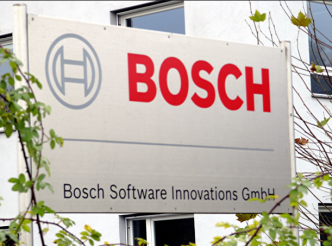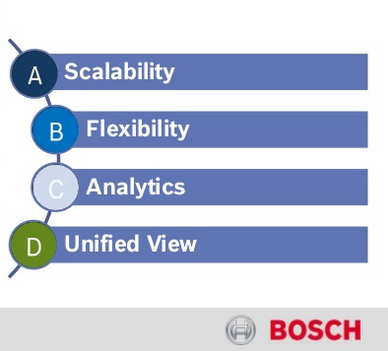 How are organizations dealing with digital transformation and especially IoT? The key has to be one where sustainable success is central.
How are organizations dealing with digital transformation and especially IoT? The key has to be one where sustainable success is central.
One company that really has become fully engaged in their digital transformation is Bosch, it is well on its way to being a world-leading IoT solution company, offering its expertise, solutions, and knowledge back into its own products and through this expertise also connecting this out to others, to explore and exploit through Bosch’s platform and cloud solutions.
In focusing here specifically on Bosch, we can get a fairly detailed understanding of what challenges are being tackled to connect products, customers, manufacturers, software providers into a connected world where platforms and ecosystems come alive through technology and digital application.
It is a highly complex set of challenges to complete this digitally connected set of solutions but by studying Bosch in some detail and its approach into this, can give us a very detailed understanding as an exemplary example of what they are undertaking to take a leading position in the IIoT world, to make it fully interoperable and realizable.
This path is not for the majority as they are not as well positioned as Bosch but it does give a good understanding of the level of commitment one company has decided to take, to become a leading provider of platform services in manufacturing and smart solutions.
So why am I looking at Bosch relating to ecosystems and platforms?
Let me explain this, after a fair amount of research into them to provide a detailed (enough) understanding of why I think Bosch is a leading provider of platform digital solutions today I was impressed but will it have the ability to translate this over the long term?
Bosch is seemingly wanting to become the one-stop platform provider for manufacturing and connecting all the digital transformational needs and solutions. Can it? What does this mean, is it heading for a leading de-facto industrial platform? What will other organizations need to do in their digital transformation to sit on top of Bosch’s platform?
Bosch, are for me highly relevant in understanding all the complexity that goes into forming a platform, especially in the manufacturing world today and how they are setting about getting all the parties attracted, linking and setting the conditions for the growing participation in establishing of the ecosystem between parties that are wanted to connect.
Continue reading →

 So what is the difference between a fog and a cloud? Well, actually bandwidth is part of the answer and where data needs to be situated.
So what is the difference between a fog and a cloud? Well, actually bandwidth is part of the answer and where data needs to be situated. In the last post Paul wrote about
In the last post Paul wrote about  Bosch takes connected devices, open platforms, and interoperability for IoT solutions to drive your business, built from their own deployed experiences. They are focusing on knowledgeable development & deployment to provide a single integrated set of ‘connecting’ solutions.
Bosch takes connected devices, open platforms, and interoperability for IoT solutions to drive your business, built from their own deployed experiences. They are focusing on knowledgeable development & deployment to provide a single integrated set of ‘connecting’ solutions. How are organizations dealing with digital transformation and especially IoT? The key has to be one where sustainable success is central.
How are organizations dealing with digital transformation and especially IoT? The key has to be one where sustainable success is central.